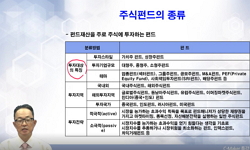This article presents a new index of anti-corruption agencies (ACAs) covering 53 states between 2006 and 2011. The ACA Index complements research on ACA performance by adding a comparative dimension to the mainly qualitative literature on ACA effectiv...
http://chineseinput.net/에서 pinyin(병음)방식으로 중국어를 변환할 수 있습니다.
변환된 중국어를 복사하여 사용하시면 됩니다.
- 中文 을 입력하시려면 zhongwen을 입력하시고 space를누르시면됩니다.
- 北京 을 입력하시려면 beijing을 입력하시고 space를 누르시면 됩니다.
https://www.riss.kr/link?id=A105928248
-
저자
Sergio Marco Gemperle (Department Social Sciences, University of Basel, Basel, Switzerland)

- 발행기관
- 학술지명
- 권호사항
-
발행연도
2018
-
작성언어
English
- 주제어
-
등재정보
KCI등재,SCOPUS
-
자료형태
학술저널
- 발행기관 URL
-
수록면
16-35(20쪽)
-
KCI 피인용횟수
0
- DOI식별코드
- 제공처
-
0
상세조회 -
0
다운로드
부가정보
다국어 초록 (Multilingual Abstract)
This article presents a new index of anti-corruption agencies (ACAs) covering 53 states between 2006 and 2011. The ACA Index complements research on ACA performance by adding a comparative dimension to the mainly qualitative literature on ACA effectiveness. First, the institutional determinants of ACA effectiveness are defined, comprising the mandate, political independence, resources and powers and accountability mechanisms. A strategy to achieve comparative measures of ACA capacity is then outlined and implemented combining data from the Global Integrity Index with a new dataset on ACA functions. The data shows interesting variations in the functions that together compose ACA mandates and illustrates the uneven distribution of ACAs across different world regions. A brief analysis of the ACA Index suggests the importance of ACA capacity for the perception of a government’s seriousness to reduce corruption while on the other hand their role as the sole decisive institution in a country’s strategy against corruption is relativized.
참고문헌 (Reference)
1 Doig, A., "Why do developing country anti-corruption commissions fail to deal with corruption? Understanding the three dilemmas of organisational development, performance expectation, and donor and government cycles" 27 (27): 251-259, 2007
2 Kuris, G., "Watchdogs or guard dogs: Do anti-corruption agencies need strong teeth?" 34 (34): 125-135, 2015
3 Kpundeh, S. J., "WBI development studies. Building state capacity in Africa: New approaches, emerging lessons" World Bank 257-282, 2004
4 Coppedge, M., "Thickening thin concepts and theories : Combining large N and small in comparative politics" 31 (31): 465-476, 1999
5 Engelbert, A., "The role of anti-corruption agencies in the investigation and prosecution of procurement related corruption cases" Ruhr-Universität Bochum; Institut für Entwicklungsforschung und Entwicklunspolitik website 2014
6 Mungiu-Pippidi, A., "The quest for good governance: How societies develop control of corruption" Cambridge University Press 2015
7 Lawson, L., "The politics of anti-corruption reform in Africa" 47 (47): 73-100, 2009
8 Gilley, B., "The meaning and measure of state legitimacy : Results for 72 countries" 45 (45): 499-525, 2006
9 Schütte, S. A., "The fish’s head: Appointment and removal procedures for anti-corruption agency leadership (U4 Issue No. 12)"
10 Hanna, R., "The effectiveness of anticorruption policy: What has worked, what hasn’t, and what we don’t know (Technical Report)" University of London, EPPI-Centre, Social Science Research Unit, Institute of Education 2011
1 Doig, A., "Why do developing country anti-corruption commissions fail to deal with corruption? Understanding the three dilemmas of organisational development, performance expectation, and donor and government cycles" 27 (27): 251-259, 2007
2 Kuris, G., "Watchdogs or guard dogs: Do anti-corruption agencies need strong teeth?" 34 (34): 125-135, 2015
3 Kpundeh, S. J., "WBI development studies. Building state capacity in Africa: New approaches, emerging lessons" World Bank 257-282, 2004
4 Coppedge, M., "Thickening thin concepts and theories : Combining large N and small in comparative politics" 31 (31): 465-476, 1999
5 Engelbert, A., "The role of anti-corruption agencies in the investigation and prosecution of procurement related corruption cases" Ruhr-Universität Bochum; Institut für Entwicklungsforschung und Entwicklunspolitik website 2014
6 Mungiu-Pippidi, A., "The quest for good governance: How societies develop control of corruption" Cambridge University Press 2015
7 Lawson, L., "The politics of anti-corruption reform in Africa" 47 (47): 73-100, 2009
8 Gilley, B., "The meaning and measure of state legitimacy : Results for 72 countries" 45 (45): 499-525, 2006
9 Schütte, S. A., "The fish’s head: Appointment and removal procedures for anti-corruption agency leadership (U4 Issue No. 12)"
10 Hanna, R., "The effectiveness of anticorruption policy: What has worked, what hasn’t, and what we don’t know (Technical Report)" University of London, EPPI-Centre, Social Science Research Unit, Institute of Education 2011
11 Teorell, J., "The Quality of Government Standard Dataset, version Jan17. Gothenburg"
12 Global Integrity, "The Global Integrity Report: 2011 Methodology White Paper"
13 OECD, "Specialised anti-corruption institutions : Review of models" OECD 2008
14 Pugh, M., "Political economy of statebuilding: Power after peace" Routledge 79-93, 2013
15 Batory, A., "Political cycles and organizational life cycles : Delegation to anticorruption agencies in Central Europe" 25 (25): 639-660, 2012
16 Hough, D., "Political corruption and governance series" Palgrave Macmillan 2013
17 Doig, A., "Measuring ‘success’ in five African anti-corruption commissions - the cases of Ghana, Malawi, Tanzania, Uganda & Zambia (U4 Reports)"
18 Camerer, M. I., "Measuring public integrity" 17 (17): 152-165, 2006
19 최진욱, "MEASURING THE PERFORMANCE OF AN ANTICORRUPTION AGENCY: THE CASE OF THE KPK IN INDONESIA" 한국행정학회 16 (16): 45-63, 2011
20 UNODC, "Jakarta statement on principles for anti-corruption agencies"
21 Wrong, M., "It’s our turn to eat : The story of a Kenyan whistleblower" Fourth Estate 2010
22 Recanatini, F., "International handbook on the economics of corruption" Edward Elgar 528-566, 2011
23 Wettenhall, R., "Integrity agencies : The significance of the parliamentary relationship" 33 (33): 65-78, 2012
24 UNDP, "Institutional arrangements to combat corruption : A comparative study" UNDP 2005
25 Doig, A., "Hands-on or hands-off? Anti-corruption agencies in action, donor expectations, and a good enough reality" 26 (26): 163-172, 2006
26 Doig, A., "Governments, NGOs and anti-corruption: The new integrity warriors" Routledge 65-84, 2010
27 Sampson, S., "Governments, NGOs and anti-corruption: The new integrity warriors" Routledge 168-185, 2010
28 Kotera, G., "Government size, democracy, and corruption : An empirical investigation" 29 (29): 2340-2348, 2012
29 Kuris, G., "From underdogs to watchdogs: How anti-corruption agencies can hold off potent adversaries"
30 Schütte, S. A., "Fishing for the right ACA heads, and keeping them safe"
31 Quah, J. S. T., "Evaluating the effectiveness of anti-corruption agencies in five Asian countries : A comparative analysis" 4 (4): 143-159, 2015
32 De Sousa, L., "Does performance matter to institutional survival? The method and politics of performance measurement for anti-corruption agencies" San Domenico di Fiesole 2009
33 Quah, J. S. T., "Defying institutional failure: Learning from the experiences of anticorruption agencies in four Asian countries" 53 (53): 23-54, 2010
34 De Maria, W., "Cross cultural trespass : Assessing African anti-corruption capacity" 8 (8): 317-341, 2008
35 Belloni, R., "Corruption in post-conflict Bosnia-Herzegovina and Kosovo : A deal among friends" 35 (35): 855-871, 2014
36 Ivanov, K. S., "Corruption and development: The anti-corruption campaigns" Palgrave Macmillan 28-45, 2007
37 Dix, S., "Corruption and Anti-Corruption in Nepal: Lessons Learned and Possible Future Initiatives" Oslo 2011
38 Fisman, R., "Corruption : What everyone needs to know" Oxford University Press 2017
39 Bollen, K., "Conventional wisdom on measurement : A structural equation perspective" 110 (110): 305-314, 1991
40 Munck, G. L., "Conceptualizing and measuring democracy : Evaluating alternative indices" 35 (35): 5-34, 2002
41 Kuris, G., "Cleaning house: Croatia mops up high-level corruption, 2005-2012"
42 Wilkins, P., "Benefits and risks of collaboration between watchdogs : The Western Australian experience" 38 (38): 291-310, 2017
43 Quah, J. S. T., "Benchmarking for excellence : A comparative analysis of seven Asian anticorruption agencies" 31 (31): 171-195, 2009
44 Smilov, D., "Anticorruption agencies: Expressive, constructivist and strategic uses" 53 (53): 67-77, 2010
45 Meagher, P., "Anticorruption Agencies (ACAs)"
46 Heilbrunn, J., "Anti-corruption commissions: Panacea or real medicine to fight corruption?" World Bank Institute website
47 De Sousa, L., "Anti-corruption agencies: Between empowerment and irrelevance" 53 (53): 5-22, 2010
48 Meagher, P., "Anti-corruption agencies: A review of experience" Center for Institutional Reform and the Informal Sector, University of Maryland 2004
49 Meagher, P., "Anti-corruption agencies : Rhetoric versus reality" 8 (8): 69-103, 2005
50 Bolongaita, E. P., "An exception to the rule? Why Indonesia’s anti-corruption commission succeeds where others don’t - a comparison with the Philippines’ Ombudsman"
51 Schütte, S. A., "Against the odds : Anti-corruption reform in Indonesia" 32 (32): 38-48, 2012
52 Stone, B., "Accountability and the design of an anticorruption agency in a parliamentary democracy" 36 (36): 157-175, 2015
동일학술지(권/호) 다른 논문
-
- 한국행정학회
- 박나라
- 2018
- KCI등재,SCOPUS
-
Corporate social responsibility in East Asia: a comparative approach
- 한국행정학회
- 김석은
- 2018
- KCI등재,SCOPUS
분석정보
인용정보 인용지수 설명보기
학술지 이력
| 연월일 | 이력구분 | 이력상세 | 등재구분 |
|---|---|---|---|
| 2023 | 평가예정 | 해외DB학술지평가 신청대상 (해외등재 학술지 평가) | |
| 2020-01-01 | 평가 | 등재학술지 유지 (해외등재 학술지 평가) |  |
| 2011-01-01 | 평가 | 등재학술지 유지 (등재유지) |  |
| 2009-01-01 | 평가 | 등재학술지 유지 (등재유지) |  |
| 2007-01-01 | 평가 | 등재학술지 유지 (등재유지) |  |
| 2004-01-01 | 평가 | 등재학술지 선정 (등재후보2차) |  |
| 2003-01-01 | 평가 | 등재후보 1차 PASS (등재후보1차) |  |
| 2002-01-01 | 평가 | 등재후보학술지 유지 (등재후보1차) |  |
| 1999-07-01 | 평가 | 등재후보학술지 선정 (신규평가) |  |
학술지 인용정보
| 기준연도 | WOS-KCI 통합IF(2년) | KCIF(2년) | KCIF(3년) |
|---|---|---|---|
| 2016 | 0.29 | 0.29 | 0.28 |
| KCIF(4년) | KCIF(5년) | 중심성지수(3년) | 즉시성지수 |
| 0.25 | 0.27 | 0.381 | 0.05 |





 KCI
KCI





